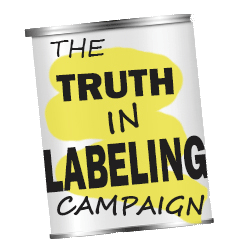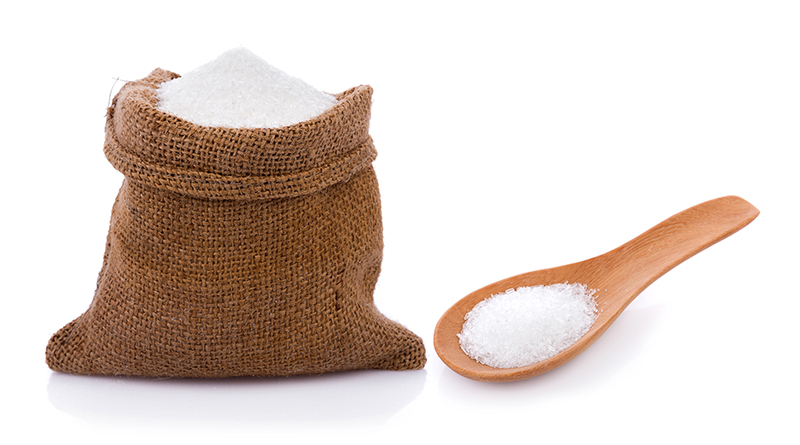Did the people at Edelman Public Relations (who currently have a multi-million dollar Ajinomoto account) dream up substituting MSG for salt to cut down on sodium intake, or is this a Glutamate Association original to promote sales of MSG?
Plenty of “salt is bad for you” articles can be found, such as this one at SFgate that states: “… if you consume too much sodium, over time this can lead to potentially serious health problems. Managing your sodium intake is of key importance to maintaining your health and well-being.”
On the other hand, glutamate-industry propaganda almost always contains at least a line or two claiming that MSG contains less sodium than table salt – without mentioning that MSG contributes to brain damage, obesity, infertility, a-fib, migraine headache, asthma, seizures and more.
So, if you’re trying to manage your sodium intake for health reasons, why on earth would you purposefully ingest products that are loaded with brain-damaging, obesity-producing, infertility-causing glutamate?
If you have questions or comments, we’d love to hear from you. If you have hints for others on how to avoid exposure to MfG, send them along, too, and we’ll put them up on Facebook. Or you can reach us at questionsaboutmsg@gmail.com and follow us on Twitter @truthlabeling.



People who front for the glutamate industry are creative in their presentations. If you have interest, some of their strategies are detailed in the article,
Samuels A. The toxicity/safety of processed free glutamic acid (MSG): a study in suppression of information. Account Res. 1999;6(4):259-310. doi: 10.1080/08989629908573933. PMID: 11657840. https://www.truthinlabeling.org/assets/manuscript2.pdf
One of their choice lines of attack has been to attribute words to the critics of MSG and MfG that the critics did not actually use, which might be referred to at a later date to discredit them. Phrases like the ones you used in replying to the blog “The insanity of using MSG as a salt-substitute,” like “The one and only scholarly paper you cite,” and “Surely there must be research newer than from 50+ years ago to definitely support (or refute) your wild assertions?” Phrases like “your vitriol,” and “Your empathy is even worse than your lack of reading comprehension.”
For further clarification, I recommend the newly published book, The Perfect Poison, available at Amazon.com.
The one and only scholarly paper you cite is from 1969. In the related articles below it is a 1970 paper (Adamo and Ratner) that says, “[T]reated animals showed no adverse monosodium glutamate effects on the reproductive system and neural morphology.” So your one and only source refers to other researchers that found the opposite. Surely there must be research newer than from 50+ years ago to definitely support (or refute) your wild assertions?
So, if you’re trying to manage your sodium intake for health reasons, why on earth would you purposefully ingest products that are loaded with brain-damaging, obesity-producing, infertility-causing glutamate?
You appear to be pointing to an article that makes the point that manufactured free glutamate (MfG) is toxic. It was not mentioned in the blog that there are many studies that demonstrate that MfG is toxic. Should you have interest, you’ll find a great deal of information including to references to evidence that demonstrates that MfG is toxic on the website of the Truth in Labeling Campaign: http://www.truthinlabeling.org. The categories “RISK” and “DATA” are probably the most relevant to your inquiry.
For some reason which I do not understand, you singled out from a list of related articles following the reference to the 1969 Olney article mentioned in the blog (not from the blog being questioned), the only one in that list that disputes the findings of MfG toxicity. There are quite a number of such articles, all of them badly flawed. The double-blind studies among them used “placebos” that contained excitotoxic amino acids that cause adverse reactions identical to those caused by MSG test material.
Your statement, “So your one and only source refers to other researchers that found the opposite,” is not true. The 1969 Olney article did not refer to research that found “the opposite.” You made that up. What you have done reminds me of other occasions when agents of the glutamate industry misquoted me or my husband with, I presume, the intent to use their misquotes as evidence for something that would discredit us or the veracity of the claim that MfG is toxic. Or maybe you’ve dredged up a two-year-old blog, counting on the possibility that I could be criticized for not responding to your inquiry.
The blog suggests that it would appear to be counterproductive to ingest such a toxic ingredient in order to modify salt intake.
No, I did not dredge up anything with any hopes of something, I googled a specific question and this article was one of the first results. I did not even know you entire blog is about this one and only subject till after I posted my comment and began to see what else was there. Had I been hoping you did not reply, why did I email you specifically asking you to? My comment “your one and only source refers to other researchers that found the opposite” refers to the sentence immediately before it, which refers to a quote from another paper that is linked on the same page as your source. Scroll up and see. I don’t understand your vitriol, nor do I understand your assumption I am an industry person. I am a 58-year-old man who had a TIA earlier this year and am looking for alternatives to the bland diet I am currently resigned to. Your empathy is even worse than your lack of reading comprehension, if I dare say. I wish you the best, nonetheless.